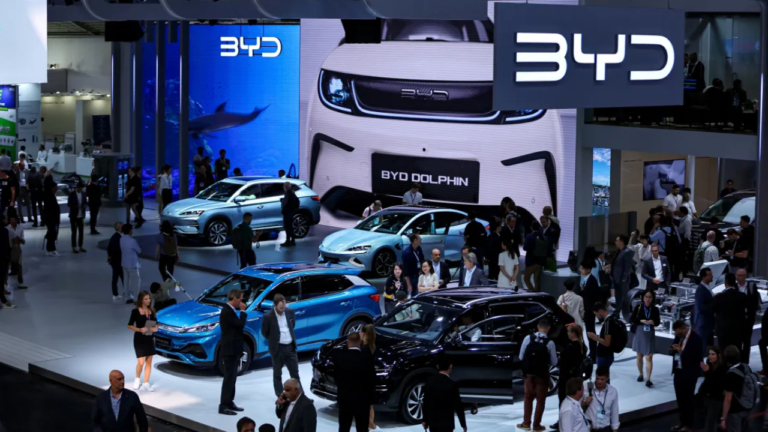In a move that has sent ripples through Brazil’s automotive sector, Ford’s decision to exit the Brazilian market has created both challenges and opportunities. Amidst this upheaval, the Chinese electric vehicle manufacturer BYD (Build Your Dreams) has emerged as a promising contender, signaling a paradigm shift in the country’s automotive landscape.
Ford’s departure from Brazil, announced in early 2021, marked the end of an era for the company’s operations in the region. Factors such as economic instability, high production costs, and intense competition had rendered the market increasingly challenging for the American automaker. As a result, Ford ceased manufacturing vehicles in Brazil and shifted its focus to other regions with greater growth potential.
However, amidst Ford’s exit, BYD has seized the opportunity to expand its presence in Brazil’s automotive market. Renowned for its electric vehicles and innovative technology, BYD has been actively pursuing partnerships and investments to establish a solid foothold in the country. With an ambitious vision for sustainable mobility, BYD aims to leverage Brazil’s vast market potential and growing interest in electric vehicles.
The substitution of Ford for BYD signifies more than just a change in market dynamics; it reflects the broader trends reshaping the global automotive industry. As the world increasingly transitions towards electric and sustainable mobility solutions, traditional automakers face mounting pressure to adapt or risk becoming obsolete. BYD’s entry into Brazil underscores the growing importance of electric vehicles and renewable energy technologies in driving future automotive growth.
Moreover, BYD’s presence in Brazil has the potential to stimulate innovation and competition within the industry. As a leading manufacturer of electric vehicles, BYD brings advanced technology and expertise to the table, spurring other automakers to innovate and invest in sustainable solutions. This competitive environment could ultimately benefit consumers by offering a wider range of choices and driving down prices through economies of scale.
Nevertheless, BYD’s success in Brazil is not guaranteed, and the company will face its own set of challenges as it seeks to establish itself in the market. These challenges include navigating regulatory hurdles, building brand awareness, and overcoming consumer skepticism towards electric vehicles. Additionally, BYD will need to invest in infrastructure and charging networks to support the widespread adoption of electric vehicles across Brazil.
In conclusion, Ford’s exit from Brazil and BYD’s subsequent entry mark a significant turning point in the country’s automotive industry. While Ford’s departure underscores the challenges facing traditional automakers, BYD’s emergence highlights the opportunities presented by electric and sustainable mobility solutions. As Brazil embarks on this new chapter in its automotive journey, the success of BYD and other innovative companies will be pivotal in shaping the future of mobility in the region.



